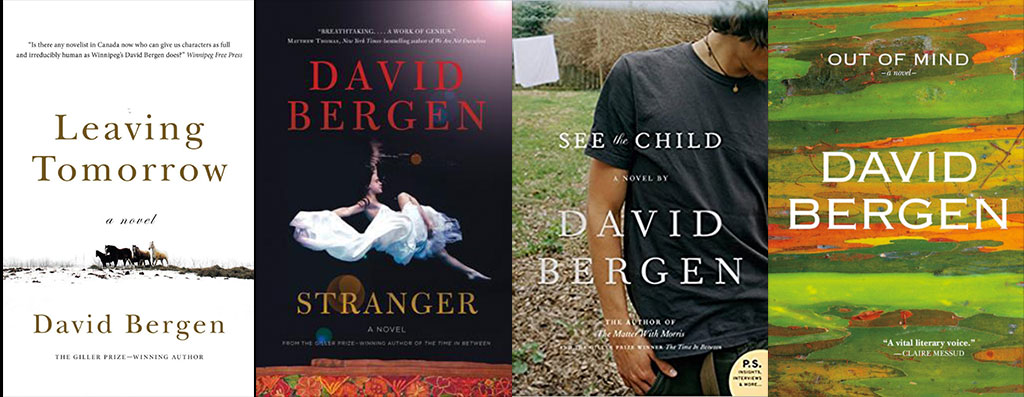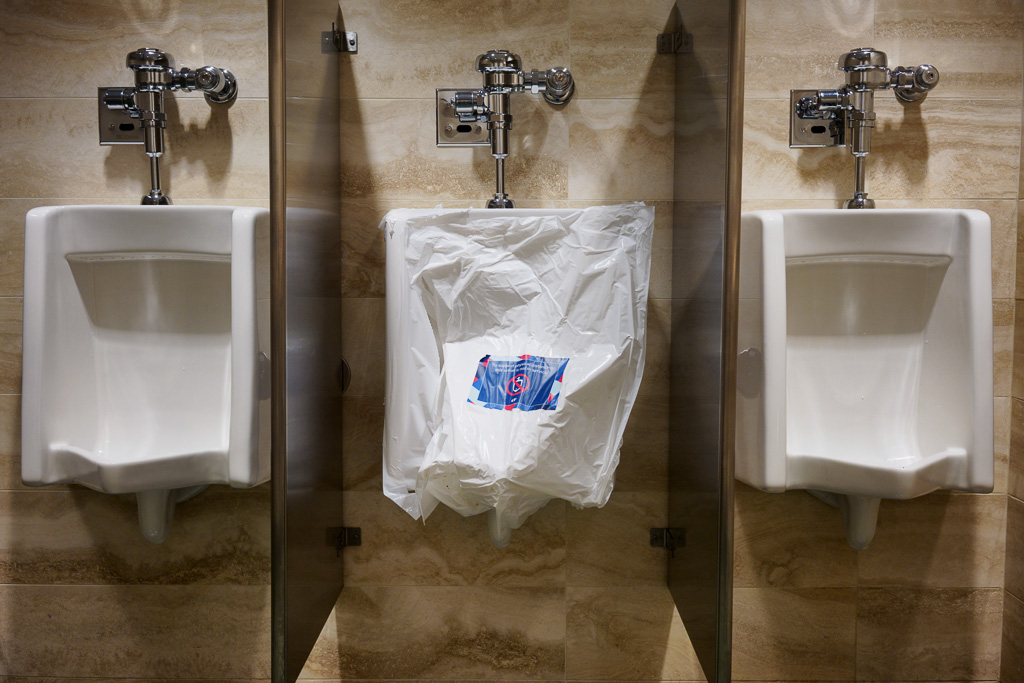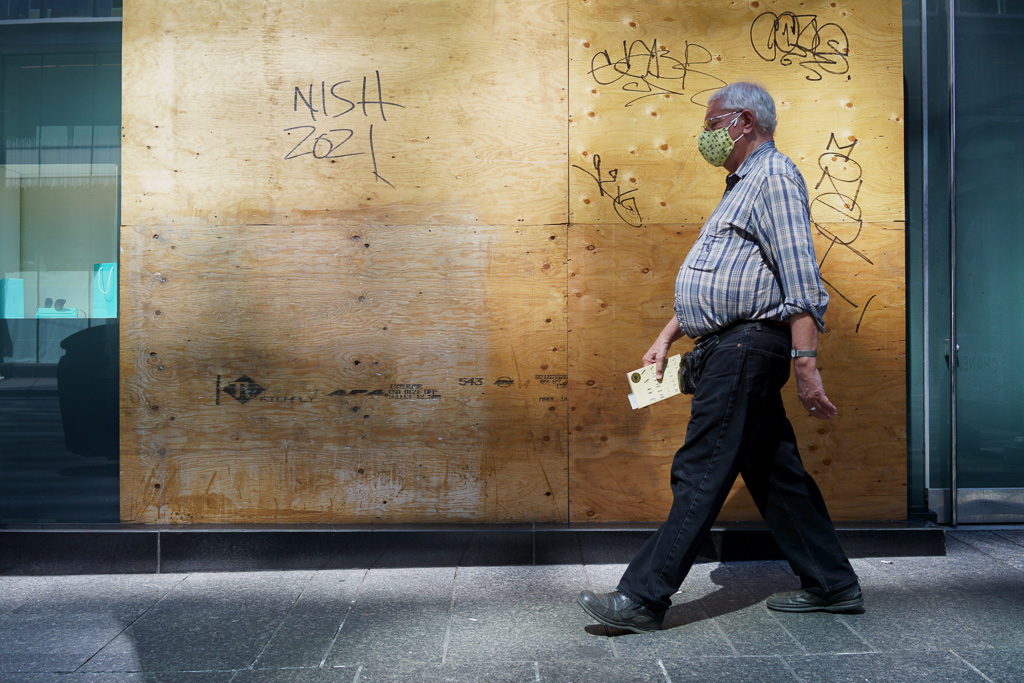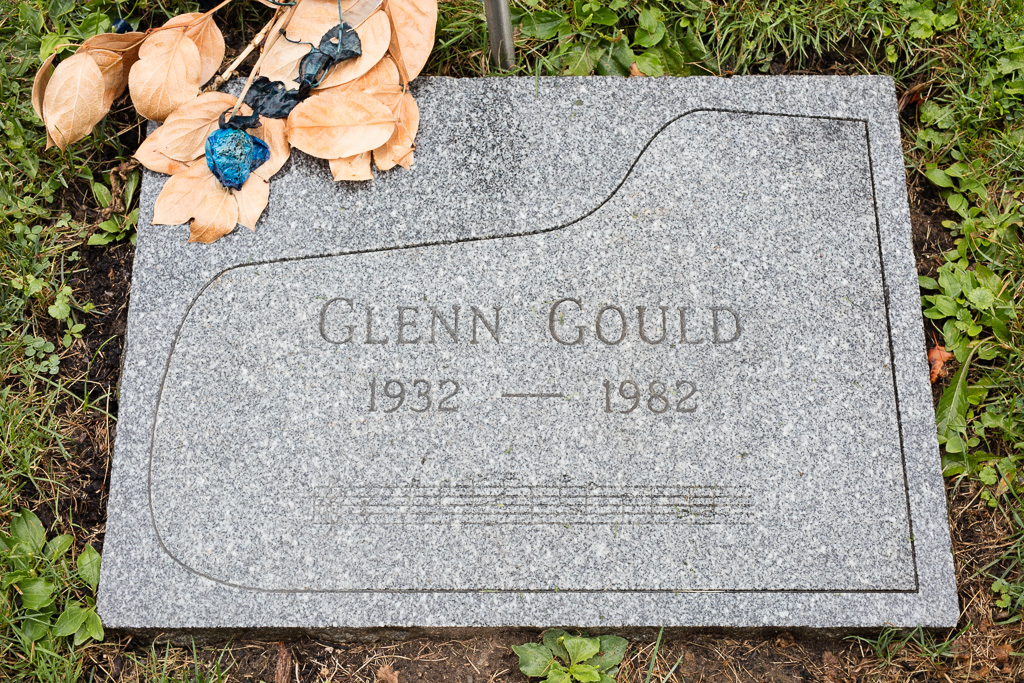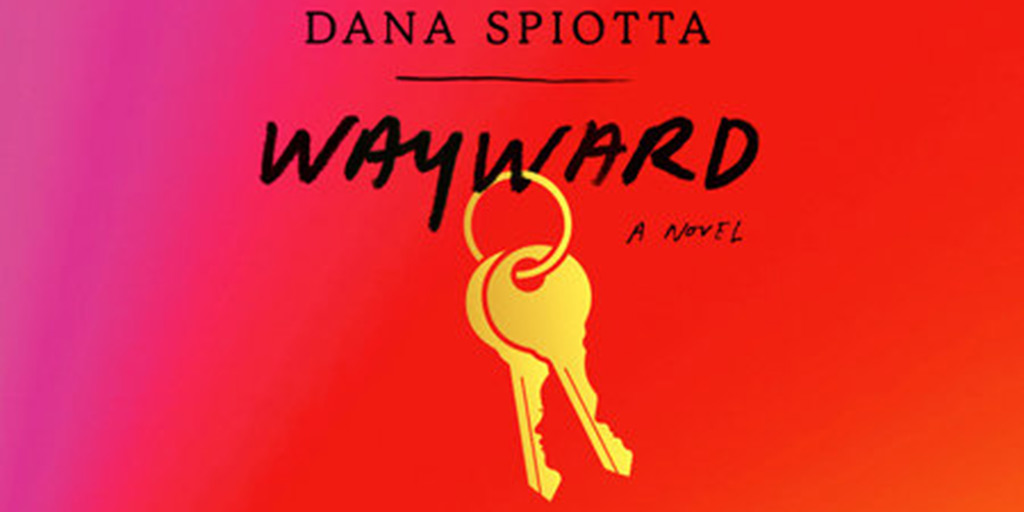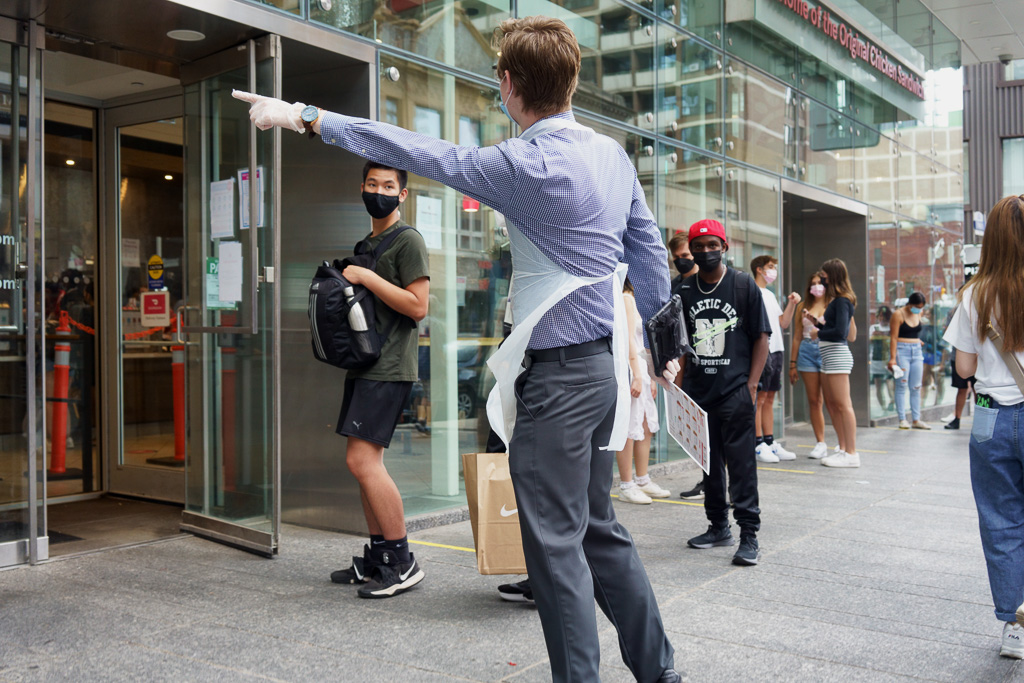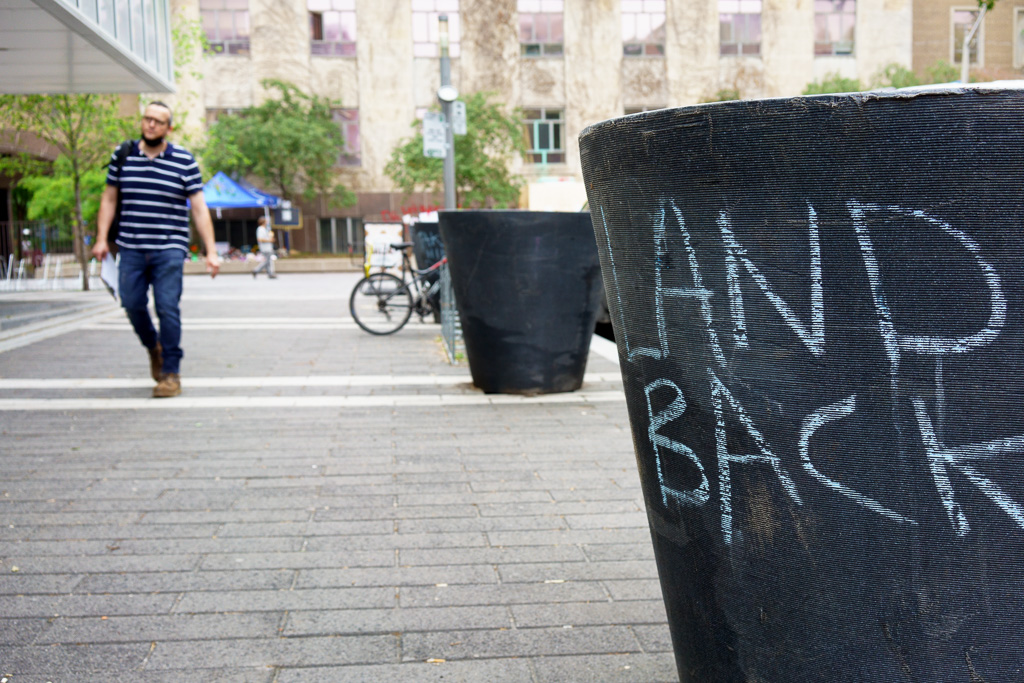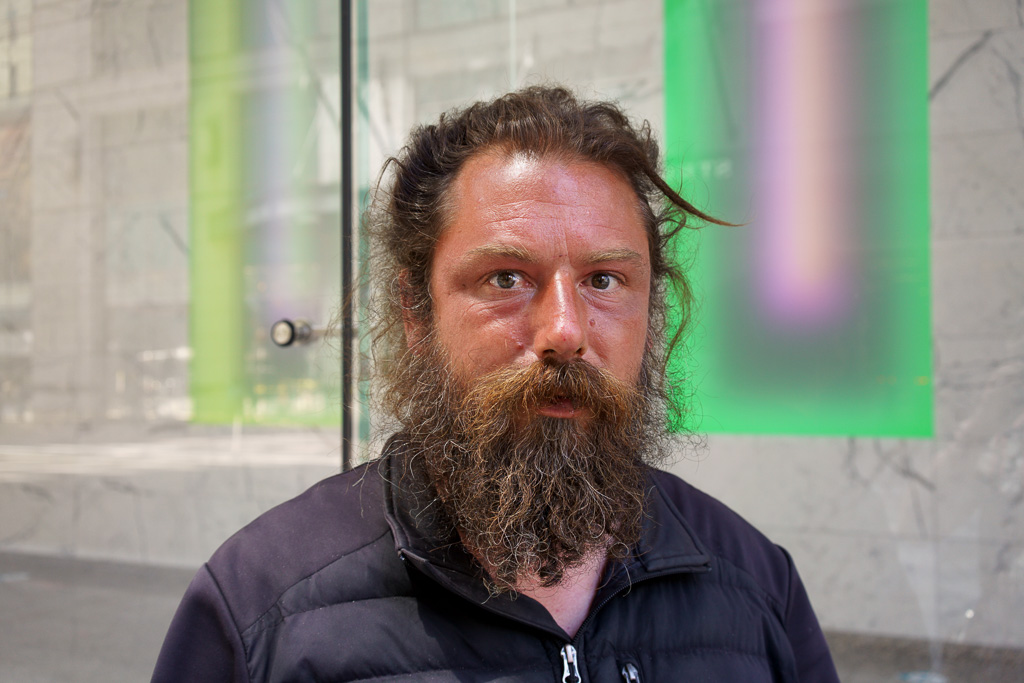Olivia Laing begins by posing questions and conducts a meandering investigation, associative in approach and aleatory in feel, that is not driven by pre-determined suppositions she feels compelled to prove but instead is lured on by a restless intellectual curiosity.
Author: David Barker
Four More Novels by David Bergen: Stranger
In a time when the Black Lives Matter movement and anger around Residential Schools have thrust issues of identity and histories of colonial oppression into the foreground of public conversation, the question arises as to the function of the arts in this regard. Are the arts yet another forum for public conversation? If so, who gets to speak? And what are the rules?
Photographs of Insects in Late Summer Haliburton
In the afternoon light, I wade through the reeds and stalk mature dragonflies and damselflies. As I kneel in the water to photograph a dragonfly on a blade of grass, another settles on my back and sits there until I’m done.
Four More Novels by David Bergen: See The Child
See The Child falls squarely within the commercial realist fold, and David Bergen is one of its great stylists.
Taking the Piss out of the Pandemic
Stepping away from the cubicle, I saw that it served a small construction site. A man stood on the sidewalk eating a fruit cup for breakfast and I realized he was probably the foreman. He smiled at me and asked how my day was going. I smiled at him and hiked up my pants and said it was going well thank you; and how’s it going for you?
Four more novels by David Bergen: Leaving Tomorrow
Leaving Tomorrow, David Bergen (Toronto: HarperCollins), 2014. I am a proposer of projects aimed at answering arcane questions but, because of their arcaneness (arcanicity?) and because they would require more time of me than I have lifetimes to give, most of my projects go unprojected. One such project is to conduct a novel census. Create…
The Year of Magical Thinking
I return again to the image and wonder if an older man wearing a mask and carrying a book about grief isn’t emblematic of our times. During the pandemic, there are ways in which we all have experienced loss.
Short Story: Piano Fight Club
The kid pulled off his jacket and, with an exaggerated flourish, hurled it into the crowd. Underneath, he had two octaves of black and white keys tattooed across his chest and the words: “Scales are for pussies!” As if that weren’t enough, he had “Fuck Hanon” in block letters between his shoulder blades.
Poem: Fallen Maple
Do I really think Canada is dying? I’m not sure. I do think a particular narrative of Canada is dead and gone, didn’t deserve to live in the first place. The better question is whether we can work up a more robust narrative…
Book Review: Wayward, by Dana Spiotta
Spiotta has created not a novel so much as a record of the American zeitgeist with its strange mix of idyllic New England towns and protofascist MAGA mobs, its glorious universities and rampant anti-intellectualism, its shining democratic institutions and its racist trigger-happy police.
Racism on my first Toronto Subway Ride of 2021
My silence isn’t assent; my silence is an acknowledgement that I don’t really know what’s going on here. There is a context beyond my grasp, yet the whitest thing I could do is to presume that context doesn’t matter, that platitudes shared through Facebook memes have universal application.
Low Key Photo Walk on Canada Day 2021
At the corner of Yonge and Hayden, a woman was leaning against a utility pole, her back to me, head bowed as if she was texting or scrolling on her smart phone, purse tucked under her right arm. But the kicker was the leopard skin print dress.
Toronto Vaccine Day at Scotiabank Arena
Sometimes, when I’m out walking, the city seems to buzz. Thanks to the pandemic and the lockdowns it has required, I haven’t had that feeling for a couple years. But this Sunday was different.
Adichie’s The Headstrong Historian: a Pedagogy of Decolonization
Most often we speak of colonization as the incursion of a people onto a land that doesn’t belong to them, and the seizure of its resources, but before that comes the mastery of the subject people’s minds.
The Walker: Haunting the Streets
Beaumont conceives of walking—at least as expressed by his author/heroes—as an act of resistance insofar as it fails to conform to the imperatives of our late capitalist economy. It has no preconceived end, motivated instead by pleasure and curiosity and the demands of recreation.



